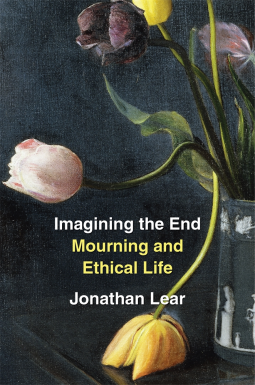
Imagining the End
Mourning and Ethical Life
by Jonathan Lear
This title was previously available on NetGalley and is now archived.
Send NetGalley books directly to your Kindle or Kindle app
1
To read on a Kindle or Kindle app, please add kindle@netgalley.com as an approved email address to receive files in your Amazon account. Click here for step-by-step instructions.
2
Also find your Kindle email address within your Amazon account, and enter it here.
Pub Date Nov 15 2022 | Archive Date Nov 15 2022
Harvard University Press | Belknap Press
Talking about this book? Use #ImaginingtheEnd #NetGalley. More hashtag tips!
Description
A leading philosopher explores the ethics and psychology of flourishing during times of personal and collective crisis.
Imagine the end of the world. Now think about the end—the purpose—of life. They’re different exercises, but in Jonathan Lear’s profound reflection on mourning and meaning, these two kinds of thinking are also connected: related ways of exploring some of our deepest questions about individual and collective values and the enigmatic nature of the good.
Lear is one of the most distinctive intellectual voices in America, a philosopher and psychoanalyst who draws from ancient and modern thought, personal history, and everyday experience to help us think about how we can flourish, or fail to, in a world of flux and finitude that we only weakly control. His range is on full display in Imagining the End as he explores seemingly disparate concerns to challenge how we respond to loss, crisis, and hope. He considers our bewilderment in the face of planetary catastrophe. He examines the role of the humanities in expanding our imaginative and emotional repertoire. He asks how we might live with the realization that cultures, to which we traditionally turn for solace, are themselves vulnerable. He explores how mourning can help us thrive, the role of moral exemplars in shaping our sense of the good, and the place of gratitude in human life. Along the way, he touches on figures as diverse as Aristotle, Abraham Lincoln, Sigmund Freud, and the British royals Harry and Meghan.
Written with Lear’s characteristic elegance, philosophical depth, and psychological perceptiveness, Imagining the End is a powerful meditation on persistence in an age of turbulence and anxiety.
Jonathan Lear is John U. Nef Distinguished Service Professor on the Committee on Social Thought and in the Department of Philosophy at the University of Chicago. His works include Wisdom Won from Illness, Radical Hope, A Case for Irony, and Happiness, Death, and the Remainder of Life.
Advance Praise
“Mourning, as Jonathan Lear shows, has always been a way of remembering that can add something new to the world. Imagining the End takes a hard look at the contemporary grounds of despair—for a person, a group, or a species—but it conveys hope by the accuracy of its imaginings. Lear’s treatment here of a great subject of moral psychology is characteristically subtle and inventive.”—David Bromwich, Yale University
“A greatly original treatment of central issues of human life—issues which have taken on new importance as we have become sharply aware of the vulnerability of life on this planet. Lear’s writing reshapes our understanding of where philosophy can take us.”—Cora Diamond, Kenan Professor of Philosophy and University Professor, Emerita, University of Virginia
Available Editions
| EDITION | Hardcover |
| ISBN | 9780674272590 |
| PRICE | $29.95 (USD) |



